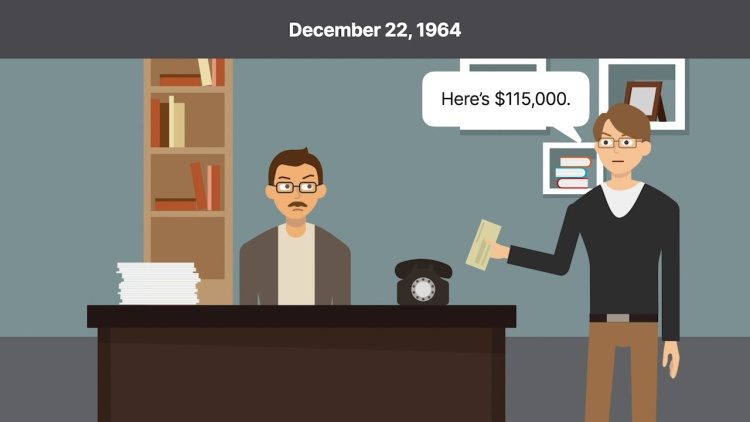Estate of Stranahan v. Commissioner
United States Court of Appeals for the Sixth Circuit
472 F.2d 867 (1973)

- Written by Sara Rhee, JD
Facts
Frank D. Stranahan (plaintiff) owed $754,815.74 in interest for deficiencies in his income, estate, and gift taxes. Stranahan paid the deficiency in 1964 and became entitled to claim interest deductions in his tax return for that year. At the time, the interest deduction was greater than Stranahan’s personal income. In order to take full advantage of the interest deduction, Stranahan arranged to accelerate his future income. Stranahan entered into an agreement with his son, whereby Stranahan would assign $122,820 worth of future stock dividends from the Champion Spark Plug Company (Champio) in exchange for $115,000, the present day value of the future dividends. In accordance with the agreement, Stranahan instructed Champion’s transfer agent to divert all stock dividends to Stranahan’s son until the son received a total of $122,820. By reporting the $115,000 as income in 1964, Stranahan was able to benefit from the entire interest deduction. In 1965, Champion paid out a total of $40,050 in dividends to Stranahan’s son. The son reported the $40,050 as income. The amount was not included on Stranahan’s tax return. The Commissioner found that the agreement between Stranahan and his son was really a loan disguised as a sale. Accordingly, the Commissioner found that in 1965, Stranahan realized taxable income in the amount of $40,050. The Tax Court ruled in favor of the Commissioner.
Rule of Law
Issue
Holding and Reasoning (Peck, J.)
What to do next…
Here's why 899,000 law students have relied on our case briefs:
- Written by law professors and practitioners, not other law students. 47,000 briefs, keyed to 994 casebooks. Top-notch customer support.
- The right amount of information, includes the facts, issues, rule of law, holding and reasoning, and any concurrences and dissents.
- Access in your classes, works on your mobile and tablet. Massive library of related video lessons and high quality multiple-choice questions.
- Easy to use, uniform format for every case brief. Written in plain English, not in legalese. Our briefs summarize and simplify; they don’t just repeat the court’s language.





